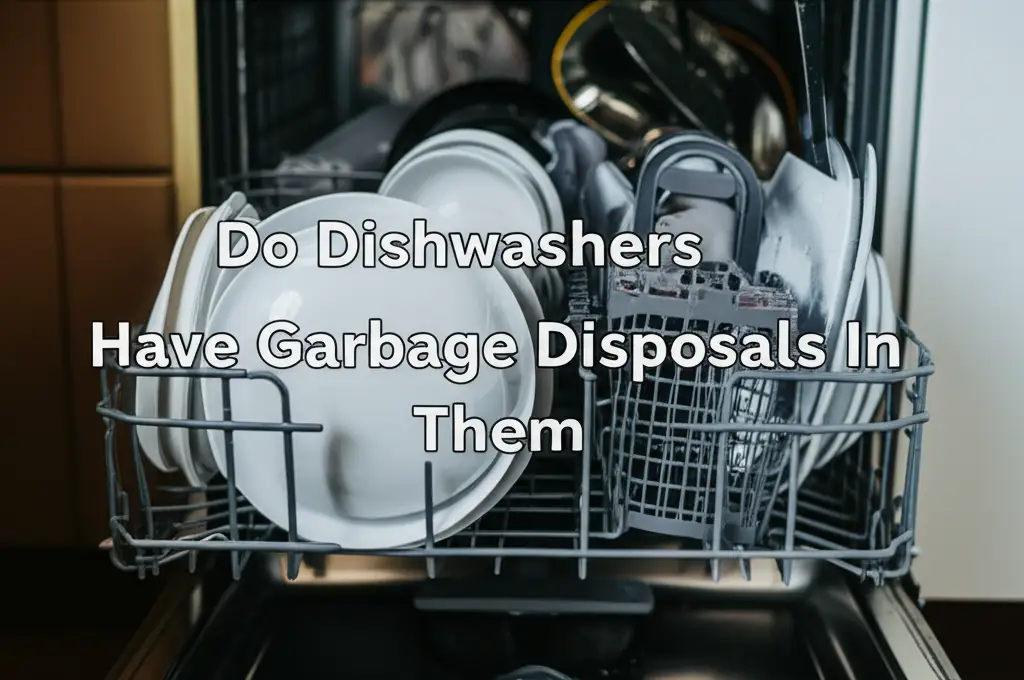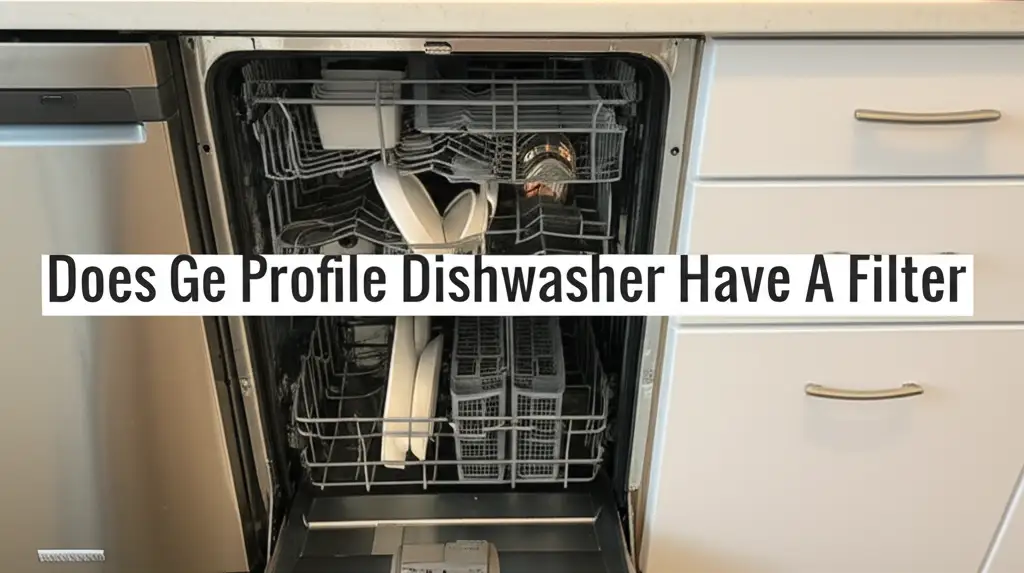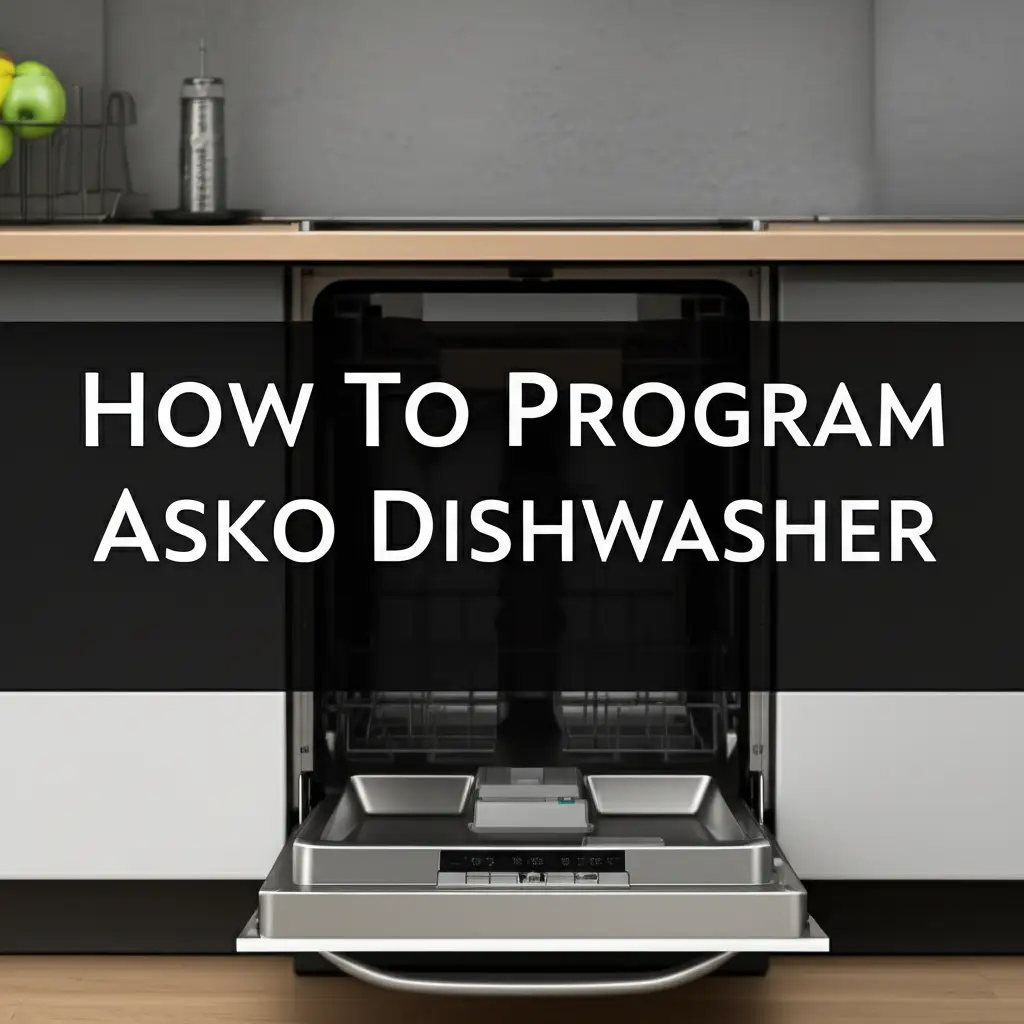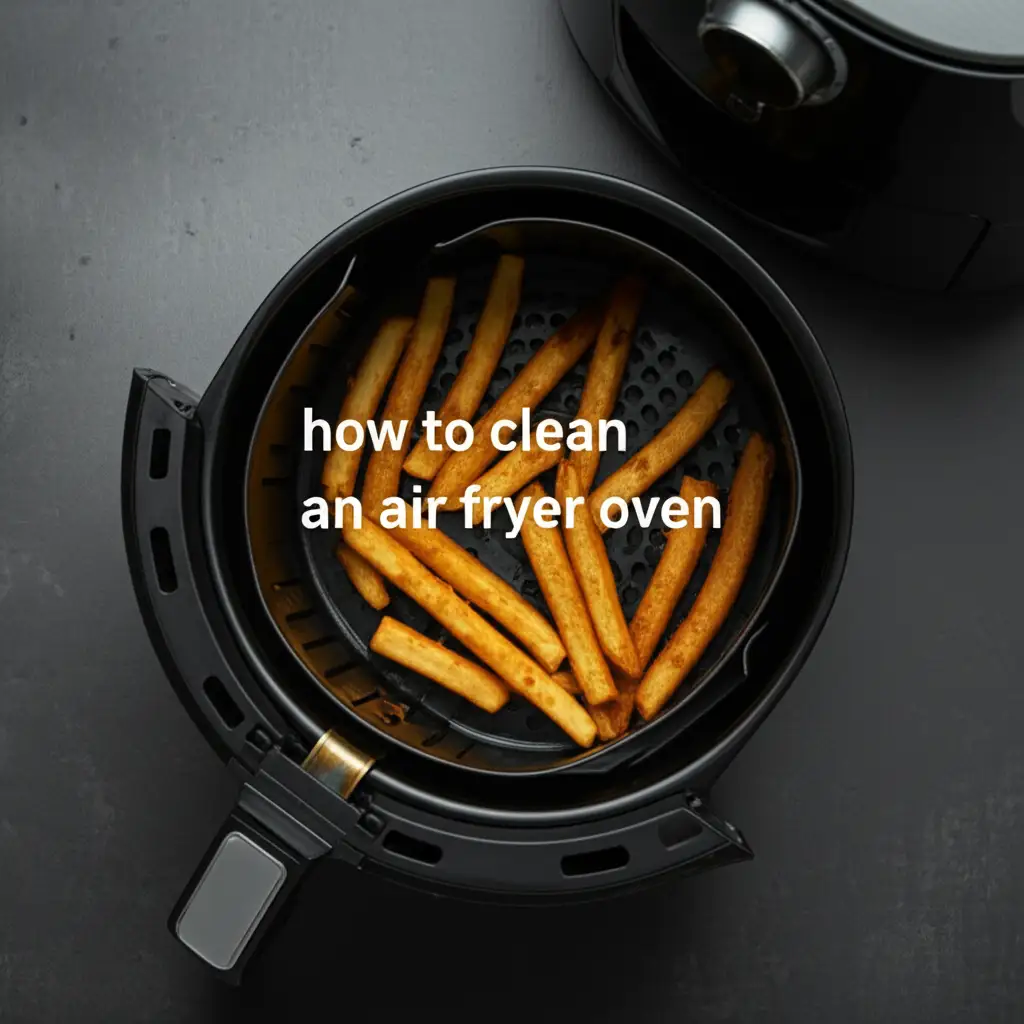· Tessa Winslow · Home Appliances · 19 min read
Do Dishwashers Have Garbage Disposals In Them

Do Dishwashers Have Garbage Disposals In Them: Unpacking Food Waste Solutions
Many people wonder about the internal workings of their kitchen appliances. One common question is, “Do dishwashers have garbage disposals in them?” It is a good question because both machines handle food waste. However, their methods are quite different. Understanding how your dishwasher handles food particles helps you use it correctly. This knowledge also helps you keep your appliance running smoothly. We will explain how dishwashers manage food, the role of filters, and the truth about built-in disposals.
Takeaway
- Dishwashers use filters, not disposals. Modern dishwashers primarily use filtration systems to manage food debris. They do not have grinding blades like a garbage disposal.
- Pre-rinsing depends on your dishwasher type. With efficient filter systems, heavy pre-rinsing is often unnecessary. Scrape large food bits.
- Regular filter cleaning is vital. Manual clean filters need routine removal and washing. Self-cleaning filters handle smaller debris.
- Prevent clogs and odors. Proper maintenance prevents food buildup, ensures clean dishes, and extends appliance life.
- Understand old vs. new models. Older dishwashers might have a “hard food disposer” or macerator. This differs from a true garbage disposal.
Clear, Concise Answer to the Main Query
No, most modern dishwashers do not have a garbage disposal in them like the unit under your sink. Instead, dishwashers use a filter system or, in older models, a macerator to handle food particles. These systems are designed to prevent large debris from clogging the drain pump and maintain clean dishes.
Understanding Dishwasher Food Waste Management
My first thought when hearing “Do dishwashers have garbage disposals?” is about how different these two appliances are. People often confuse the functions of a dishwasher and a garbage disposal because both deal with food scraps. However, they operate on completely different principles. A garbage disposal is a powerful machine that grinds food waste into tiny particles using rotating impellers against a grind ring. These tiny particles then wash down the drain with water.
Dishwashers, on the other hand, are designed to clean dishes, not to process large food items. Their primary job is to spray hot water and detergent to remove food residue. They also rinse the dishes and dry them. Handling large food scraps is not their main purpose. Instead, they have systems to manage small food bits that detach during the wash cycle. This management is crucial for efficient cleaning and for preventing drain blockages.
The way a dishwasher handles food waste directly affects its performance. If too much food enters the system, it can lead to clogs. Clogs cause water to back up or dishes to come out dirty. It can also cause unpleasant odors. Therefore, understanding the specific mechanism your dishwasher uses for food waste is important. This knowledge helps you take the right steps to maintain it. It also helps you avoid common problems.
Different dishwashers use different systems for food waste. The two main types are filtration systems and hard food disposers, also called macerators. Modern dishwashers increasingly rely on filtration systems. These systems are quiet and energy-efficient. They require some user maintenance. Older models or certain premium models might still feature a hard food disposer. This system grinds food down. Both systems aim to keep large particles from harming the pump or clogging the drain line. The dishwasher connects to your home’s plumbing. Often, it connects to the same drain pipe as your kitchen sink, which might include a garbage disposal. Learning how to connect a dishwasher drain to a garbage disposal is essential for proper installation.
The Role of Dishwasher Filters
When I look inside a modern dishwasher, I immediately notice the filter system. This is the primary way current models handle food particles. Instead of grinding them up, these filters catch any food debris that comes off the dishes during the wash cycle. This system is quiet because it does not involve any grinding mechanism. It also uses less water and energy compared to older models with hard food disposers. Filters are a key part of how modern dishwashers operate efficiently.
There are two main types of filter systems found in dishwashers: manual clean filters and self-cleaning filters. Each type works differently and requires different levels of attention from you. Knowing which type your dishwasher has helps you maintain it properly. Proper maintenance ensures your dishes come out sparkling clean. It also prevents clogs and odors.
Manual Clean Filters
My dishwasher, like many modern ones, has a manual clean filter. This type of filter usually consists of a two-part or three-part assembly. You can find it at the bottom of the dishwasher, usually under the lower spray arm. The system typically has a coarse filter, a fine filter, and sometimes a main filter screen. These components work together to trap food particles of various sizes. They stop these particles from recirculating onto your clean dishes.
You must remove and clean these filters regularly. Manufacturers often recommend cleaning them once a month or more often if you wash dishes with a lot of food residue. Cleaning is simple. You twist or lift the filter assembly to remove it. Then, you rinse it under running water. You can use a soft brush to remove stubborn food bits. It is important to reassemble the filter correctly after cleaning. If you do not, water can leak, or your dishes may not get clean. This type of filter system is common in quieter dishwashers.
Self-Cleaning Filters
Some dishwashers come with self-cleaning filters, also known as hard food disposer filters or macerators (though not a true garbage disposal). These systems have a small motor and blades. They automatically chop up small food particles during the wash cycle. The chopped particles are then washed away with the drain water. This means you do not have to manually clean the filter as often. This system is more convenient for many users.
However, even self-cleaning filters are not perfect. They might still leave behind some residue or clog if large, hard items enter the dishwasher. Items like bones, fruit pits, or plastic can damage the blades or cause blockages. While they require less frequent attention, you should still check and clean them occasionally. This helps ensure optimal performance. These systems are usually noisier than manual clean filter systems because of the grinding action. They also use more water.
Understanding your filter type is crucial. It directly impacts how you prepare dishes for washing. It also impacts how you maintain your appliance. A well-maintained filter system is key to a long-lasting, efficient dishwasher.
Older Models: The Hard Food Disposer (Macerator)
My journey into understanding dishwashers often leads me to older models. These appliances sometimes included a component known as a “hard food disposer” or “macerator.” This is where some of the confusion about “Do dishwashers have garbage disposals?” comes from. While it sounds similar, it is not the same as the full-sized garbage disposal under your sink. A macerator is a smaller, less powerful grinding mechanism built right into the dishwasher.
The purpose of a hard food disposer in a dishwasher was to break down small food particles. These particles detach from dishes during the wash cycle. The macerator would use small blades or impellers to chop these particles into fine pieces. These pieces could then pass through the drain pump without causing clogs. This system eliminated the need for users to manually clean a filter. For its time, it was a convenience feature.
However, this technology came with trade-offs. One significant drawback was noise. The grinding action of the macerator made these dishwashers much louder during operation. For comparison, if you are curious about appliance noise, understanding what is the decibel rating on dishwashers helps. Modern filter-based dishwashers are designed to be much quieter. The macerator also used more water and energy. It needed to keep the grinding chamber clear and flush the ground food particles.
Over time, dishwasher manufacturers began moving away from hard food disposers. The shift was primarily due to consumer demand for quieter appliances. There was also a push for more energy and water-efficient designs. Modern filtration systems proved to be a more effective and environmentally friendly solution. They also provided better cleaning performance for most households.
Today, you will rarely find a new dishwasher with a built-in macerator. If you have an older dishwasher, it might still have one. You can usually tell by the louder grinding sounds during its wash cycle. For those with these older units, it is still important to scrape large food scraps off dishes. This helps prevent overloading the macerator. It extends the life of your appliance. While these older systems were a step in appliance evolution, current technology has moved to more refined methods for managing food waste.
Why Dishwashers Don’t Use True Garbage Disposals
I often explain to friends why dishwashers are designed differently from a sink disposal. The fundamental reasons why dishwashers do not integrate full-fledged garbage disposals are about design, efficiency, and performance. A garbage disposal is a heavy-duty appliance. It is designed to handle significant amounts of food waste. It needs a powerful motor and robust grinding components. Fitting such a unit into a dishwasher would present many challenges.
Firstly, space is a major constraint. Dishwashers are compact appliances. Their interior space is optimized for washing dishes. Adding a large garbage disposal unit would take up valuable room. This would reduce the capacity for dishes. It would also increase the overall size of the appliance. Manufacturers prioritize dish capacity and efficient water spray systems. A disposal unit would interfere with these core functions.
Secondly, the operational requirements differ greatly. A garbage disposal typically runs for short bursts. It uses a strong flow of water to flush ground food down the drain. A dishwasher, however, operates for much longer cycles. Its water usage is carefully controlled for efficiency. Integrating a disposal would require a constant, powerful water flow. This would drastically increase the dishwasher’s water consumption. It would also increase energy use. Modern appliances aim for minimal resource use. Many even incorporate internal water heaters to ensure proper wash temperatures, which adds to their efficiency. You can learn more about how do dishwashers have water heaters for a deeper understanding of their internal features.
Thirdly, noise is a significant factor. Garbage disposals are inherently noisy due to their grinding action. Imagine that noise for an hour-long dishwasher cycle! Modern dishwasher design prioritizes quiet operation. They use insulation and advanced pump designs to minimize sound. Adding a powerful grinding mechanism would counteract all these efforts. It would make dishwashers an unbearable addition to quiet kitchens.
Finally, the type of food waste handled is different. Garbage disposals are for various food scraps, including larger, tougher items. Dishwashers are primarily for rinsing off residual food. They are not meant for processing bones, fruit pits, or excessive amounts of food. Their internal pumps and spray arms are delicate. They are not built for such harsh conditions. Sending large food items through a dishwasher’s internal system can cause significant damage and costly repairs. The current filtration systems are a better fit for the small, loose food bits that detach from dishes during a wash. They are designed to collect these rather than pulverize large quantities.
Pre-Rinsing Dishes: Is It Necessary?
One of the most debated topics in kitchen routines is pre-rinsing dishes. My grandmother always pre-rinsed every plate until it was spotless. However, modern dishwasher technology has changed this practice. The necessity of pre-rinsing largely depends on your dishwasher type and how it handles food waste. For many contemporary models, extensive pre-rinsing is often unnecessary and can even be counterproductive.
If your dishwasher has a modern filtration system, it is designed to handle small food particles. These systems are efficient at trapping food debris. They prevent recirculation. Scrape off large food scraps like bones, excessive sauces, or chunky leftovers. Do not rinse the dishes until they are completely clean. The detergents in modern dishwashers often contain enzymes. These enzymes need some food particles to cling to. They work best by breaking down food. If dishes are too clean, the enzymes might not activate properly. This can leave a residue on your dishes.
On the other hand, if you have an older dishwasher with a hard food disposer (macerator), some pre-rinsing can be beneficial. These systems are more prone to clogging with larger food items. Scrape plates well to reduce the burden on the macerator. This helps prevent unpleasant odors and potential drain issues. Always check your dishwasher’s user manual. The manufacturer provides specific recommendations for your model.
Overloading the dishwasher with food scraps can cause problems regardless of the system. Too much food can clog filters. It can also strain the pump. This leads to dirty dishes or even appliance damage. Consider these points when deciding how much to pre-rinse:
- Type of Food: Sticky, starchy foods like pasta or oatmeal might benefit from a quick scrape or light rinse. They can dry onto dishes and be harder for the dishwasher to remove.
- Time Before Washing: If dishes sit for a long time, food can dry and harden. In this case, a light rinse helps prevent crusty buildup.
- Dishwasher Performance: If your dishes often come out with food residue, you might need to adjust your pre-rinsing habits. Or, you may need to clean your filter more often.
- Water Hardness: In areas with very hard water, excessive food particles can combine with mineral deposits. This creates stubborn grime.
Ultimately, the goal is to find a balance. Scraping plates to remove significant food waste is always a good practice. This protects your dishwasher. It also helps prevent clogs. Beyond that, trust your dishwasher’s technology. Let it do the hard work of cleaning. You save water and time.
Maintaining Your Dishwasher’s Food Waste System
I learned early on that proper maintenance is key for any appliance. This is especially true for your dishwasher’s food waste system. Neglecting this part of the appliance can lead to many issues. These issues include dirty dishes, bad odors, and even costly repairs. Regular care ensures your dishwasher runs efficiently. It also extends its lifespan. The maintenance steps you take depend on whether your dishwasher has a manual clean filter or a self-cleaning system.
For dishwashers with manual clean filters, routine cleaning is non-negotiable. I make it a point to check my filter monthly, or more often if we have used the dishwasher a lot. Here is a simple routine I follow:
- Locate and Remove the Filter: Most filters are at the bottom of the dishwasher, often under the lower spray arm. They usually twist or lift out easily. Refer to your dishwasher’s manual if you are unsure.
- Rinse Under Running Water: Take the filter to your sink. Rinse all parts under warm running water. Use a soft brush, like an old toothbrush, to gently scrub away stubborn food particles, grease, or grime.
- Inspect for Damage: While cleaning, check the filter for any cracks or tears. A damaged filter cannot effectively trap debris. It might need replacement.
- Reassemble Correctly: After cleaning, put the filter back into place. Ensure it clicks or twists securely. An improperly installed filter can lead to dirty dishes or drainage issues.
For dishwashers with self-cleaning filters (macerators), less frequent direct cleaning is needed. However, these systems still benefit from regular attention. Even though they grind food, hard items can cause problems. Here is what I do:
- Scrape Dishes Well: Even with a macerator, large food scraps, bones, or fruit pits should never go into the dishwasher. These can damage the grinding blades or create clogs.
- Run Hot Water: Occasionally, running an empty cycle with hot water and a dishwasher cleaner can help flush out any accumulated grease or grime. This prevents odors.
- Periodic Inspection: If you notice reduced cleaning performance or strange noises, inspect the macerator area. You might need to call a technician if you suspect a blockage within the grinding unit.
Regardless of your dishwasher type, general care practices are important:
- Use the Right Detergent: Use high-quality dishwasher detergent. Avoid too much detergent, as it can cause excessive suds and residue.
- Load Correctly: Do not overcrowd the dishwasher. Proper loading allows water and detergent to reach all surfaces. This helps prevent food from redepositing.
- Run Hot Cycles: Periodically run a hot wash cycle. The heat helps to break down grease and sanitize the interior.
- Clean the Interior: Wipe down the door gasket and edges regularly. Food particles can get trapped there. This causes odors.
By dedicating a little time to maintaining your dishwasher’s food waste system, you ensure its longevity. You also get consistently clean dishes. This simple routine saves you from future headaches and potential repair costs.
Common Issues and Troubleshooting Related to Food Waste
My experience with dishwashers has shown me that most problems stem from how food waste is managed. If your dishwasher is not performing as it should, or if you notice strange smells, food waste is often the culprit. Understanding these common issues helps you troubleshoot effectively. It also helps you get your appliance back to peak performance.
Dishes Are Not Getting Clean
This is one of the most frustrating problems. You run a cycle, and dishes come out with food bits still clinging to them. This often points to an issue with the food waste system.
- Clogged Filter: The most common cause is a clogged filter. A filter blocked with food particles cannot properly trap new debris. It also prevents water from circulating effectively. The trapped food then redeposits onto your dishes.
- Solution: Remove and thoroughly clean your manual filter. If you have a self-cleaning system, ensure you are scraping dishes well. Consider running a cleaning cycle.
- Improper Loading: Overloading the dishwasher can block spray arms. This stops water and detergent from reaching all dishes. Food remains on surfaces.
- Solution: Load dishes correctly. Do not block the spray arms. Leave space for water to circulate.
- Too Much Detergent or Wrong Detergent: Too much suds from excess detergent can trap food particles. It prevents proper rinsing. Using hand dish soap can also create too many suds.
- Solution: Use only dishwasher-specific detergent. Follow the recommended dosage.
Unpleasant Odors
A smelly dishwasher can make your whole kitchen unpleasant. These odors usually come from food residue. The residue sits and decomposes inside the appliance.
- Food Buildup in Filter: Accumulated food in the filter or drain area starts to rot. This creates a foul smell.
- Solution: Clean your dishwasher filter regularly.
- Food Trapped in Drain Hose: Bits of food can get stuck in the drain hose. They decompose there.
- Solution: Run a hot cycle with a dishwasher cleaner. Check the drain connection. If the hose is connected to a garbage disposal, ensure the disposal is clear.
- Mold or Mildew: Dark, damp areas like the door gasket can harbor mold or mildew. This also causes odors.
- Solution: Wipe down the gasket and door edges with a damp cloth and a mild cleaner. Leave the door slightly ajar after a cycle to allow air circulation.
Dishwasher Not Draining Properly
If water collects at the bottom of your dishwasher after a cycle, it means it is not draining. This is often related to blockages in the food waste pathway.
- Clogged Filter/Drain Screen: The filter system or the drain screen can be completely blocked. This prevents water from going down the drain.
- Solution: Clean the filter thoroughly. Check the drain area for any visible obstructions.
- Kinked or Blocked Drain Hose: The drain hose, which carries water out of the dishwasher, might be kinked or blocked. Food particles can get stuck in it.
- Solution: Carefully pull the dishwasher out to check the drain hose for kinks. If the hose is blocked, you might need to detach it and clear it.
- Garbage Disposal Issues: If your dishwasher drains into a garbage disposal, a problem with the disposal can affect dishwasher drainage. For example, if the garbage disposal itself is clogged, it can cause backflow into the dishwasher.
- Solution: Run your garbage disposal before starting the dishwasher. Ensure it is clear. Also, if you recently installed a new garbage disposal, make sure the knockout plug was removed from the dishwasher inlet.
By addressing these common issues, you can often fix your dishwasher’s performance problems. Regular maintenance is the best defense against these food waste-related troubles.
FAQ Section
Do I need to scrape plates before loading the dishwasher?
Yes, you should always scrape large food scraps like bones, excessive sauces, or chunky leftovers into the trash before loading dishes. Modern dishwashers with filter systems are designed to handle small particles. However, removing large debris prevents filter clogs, pump strain, and ensures better cleaning results. It also reduces the chance of odors.
Can food particles damage my dishwasher?
Yes, large or hard food particles can damage your dishwasher. They can clog filters, strain the drain pump, or even damage internal components if they are not meant to be ground. Items like bones, fruit pits, and corn kernels are particularly harmful. This is why proper scraping before loading is so important for appliance longevity.
How often should I clean my dishwasher filter?
If your dishwasher has a manual clean filter, you should clean it at least once a month. If you frequently wash heavily soiled dishes or have a large household, you might need to clean it more often. Self-cleaning filters require less frequent attention but should still be inspected and cleaned periodically, perhaps every few months.
What happens if I don’t pre-rinse dishes with a filter system?
With a modern filter system, not pre-rinsing every tiny speck of food is often fine. The dishwasher is designed to capture these. In fact, some detergents work best when there’s some food residue for enzymes to break down. However, failing to scrape large chunks of food can clog the filter and lead to dirty dishes or odors.
Why does my dishwasher smell bad?
A bad odor in your dishwasher usually means food particles are accumulating and decomposing inside. Common culprits include a dirty filter, food trapped in the drain hose, or residue buildup on the door gasket. Regular cleaning of the filter, running a hot wash cycle with a dishwasher cleaner, and wiping down the interior can eliminate odors.
Conclusion
Understanding the question, “Do dishwashers have garbage disposals in them?” helps clear up a common misconception about kitchen appliances. We have established that most modern dishwashers use sophisticated filter systems to manage food waste, not a grinding disposal unit like the one under your sink. This design choice contributes to quieter operation, greater energy efficiency, and better water conservation. While older models might have featured a “hard food disposer” or macerator, these were distinct from a true garbage disposal.
The key takeaway is that your dishwasher is designed to clean dishes that have been scraped of large food remnants. It is not built to process significant quantities of food waste. Adopting good habits like scraping plates before loading and regularly maintaining your dishwasher’s filter system is crucial. This helps prevent clogs, eliminates unpleasant odors, and ensures your dishes come out sparkling clean. By understanding your appliance’s specific food waste management system and performing routine maintenance, you can extend its lifespan. You also maintain its peak cleaning performance. Take a moment to check your dishwasher’s filter. This simple step can make a big difference in your kitchen’s cleanliness and the longevity of your appliance.





